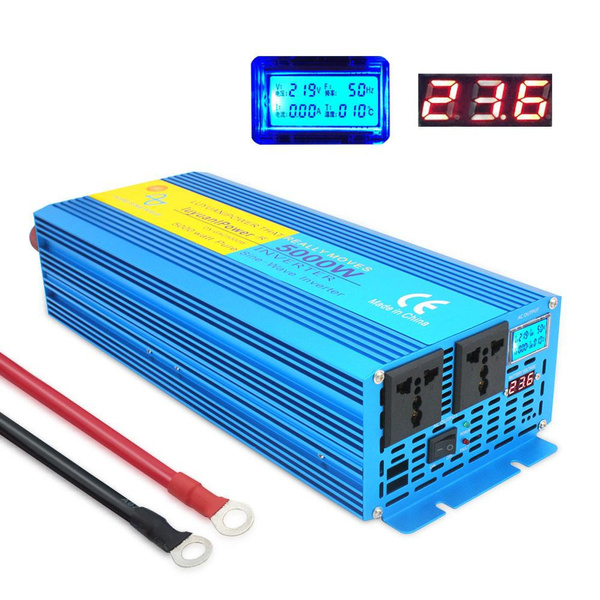Arminius
Well-Known Member
- Oct 30, 2019
- 1,061
- Boat Info
- Bowrider 200 Select, 2003
- Engines
- 5.0L MPI, 260 hp w/Alpha 1 Drive
I bought a "5000 Watt" inverter for under $200 and have found it to be surprisingly effective and reliable. I am curious if anyone knows anything about their operation. Seller was "Wish" which means it comes directly from China. Advertised as "pure sine wave," it operates my electronics unlike cheap electronic switch based inverters. My primary use is emergency power for my home's natural gas furnace whose blower has high starting amperage and which has an electronic circuit board that is allergic to square wave. I was surprised when the 12 volt side was still carrying a major charge a day after I had disconnected it. Substantial, it is too light to have a transformer inside. Don't know what makes it go but, so far, it appears to be useful for boats.
5000Watts Dual LCD Display Peak Pure Sine Wave Power Inverter US/Universal plug DC 12V 24Vto AC 220V/110V Home/outing Inverter
https://www.wish.com/product/5dad87...pOnL0AaFJvlQmm78-Ah7IBoC5x0QAvD_BwE&share=web
5000Watts Dual LCD Display Peak Pure Sine Wave Power Inverter US/Universal plug DC 12V 24Vto AC 220V/110V Home/outing Inverter
https://www.wish.com/product/5dad87...pOnL0AaFJvlQmm78-Ah7IBoC5x0QAvD_BwE&share=web



